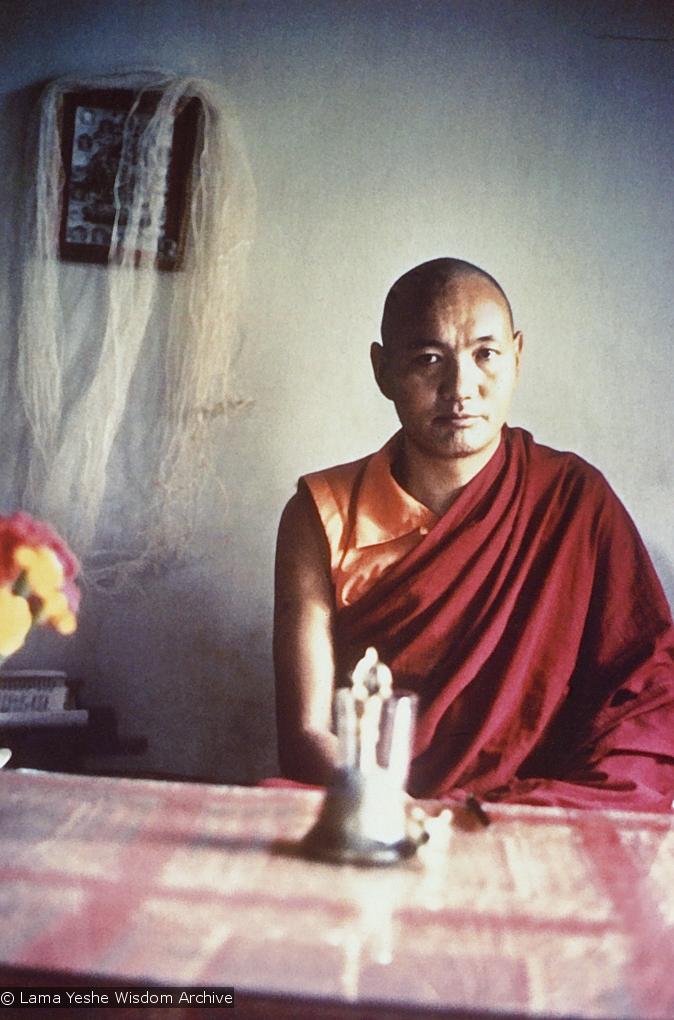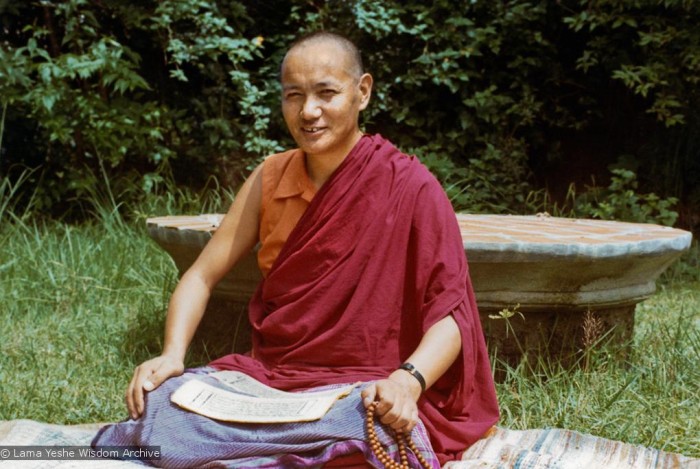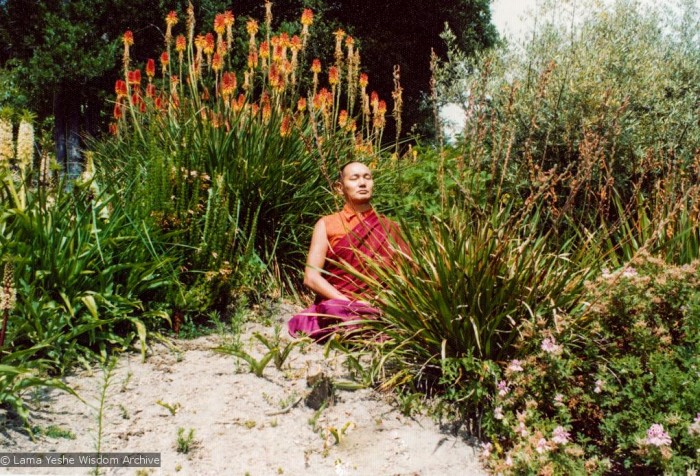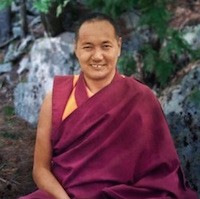
The two departments of ego and attachment work together in your mind, and as long as they do, whatever sense pleasure you enjoy, wherever you go, whatever friends you have, nothing lasts.
Your ego makes a wrong projection on an object and your attachment follows without hesitation and gets completely stuck on, or tied to, that object.
This splits and severely agitates your mind.
I’m sure you can philosophize intellectually that things are impermanent but if you check more deeply into how your ego interprets objects, what it projects onto them, you will find that it’s expecting them to last, perceiving them as permanent.
When two people get married, their egos’ interpretation is that they should be together forever, in life and even after death. It’s so exaggerated. There’s no way people can make that kind of decision. It’s not up to them; it’s up to karma. Uncontrollably, karmic energy decides which partner lives and which dies.
And when one finally does, the other misses him or her badly and experiences tremendous suffering.
All that worry and weeping, missing and memory, comes from the two mental departments of ego and attachment. Not understanding the impermanent nature of phenomena and expecting to live happily ever after, as ego and attachment wish, brings the reaction of misery. That is a karmic result, or effect. If you understand impermanence there’s no upset, no misery; you accept death as a natural thing. In fact, you expect it to happen. With understanding, there’s no worry. You know separation is natural.
 Therefore, instead of blindly following the grasping and attachment that result from the way your ego interprets things, it’s better to renounce. Perhaps you think that when I say renounce I mean that you should get rid of all your possessions, but true renunciation isn’t physical, it’s mental. It doesn’t refer to what things are worth monetarily but to how your mind values them. Your mind makes things seem very important because it does not see their reality and grossly overestimates their nature.
Therefore, instead of blindly following the grasping and attachment that result from the way your ego interprets things, it’s better to renounce. Perhaps you think that when I say renounce I mean that you should get rid of all your possessions, but true renunciation isn’t physical, it’s mental. It doesn’t refer to what things are worth monetarily but to how your mind values them. Your mind makes things seem very important because it does not see their reality and grossly overestimates their nature.
When you know that phenomena are changeable, transitory and impermanent by nature you expect things to disappear. Of course, as I just said, everybody knows this intellectually, but when you meditate on the sensations of your body and mind you experience their automatically-changing nature.
That’s not intellectual philosophy, it’s personal experience.
Other objects, such as your family and friends, material possessions, or whatever else may be your biggest object of attachment, are the same in nature. Everything is transitory, momentary; nothing lasts. We cling to these things because we think that they’re helpful, but try to ascertain whether they really help or harm your mind.
Perhaps instead of inducing peace of mind they prevent it. You check up.
Of course, it depends on your own mind. Generally speaking, the greater the number of objects of attachment around you, the more your mind is split, agitated and disordered. That’s natural; you check up. As long as the association of these two departments of ego and attachment occupies the mind, who can be happy? Even the richest man on Earth will be miserable if these two departments occupy his mind.
Therefore, don’t grasp too much at the future, imagining, “If only I had this, that and the other, I’d be happy. Oh, how I wish I had those things in my life.” It’s not true.
You can never be sure. To your ego’s interpretation, a friend, husband or wife can only be of help. Your ego grasps, “My life would be so much better if only I had somebody.” But think of a couple that stays together for, say, ten years, through countless ups and downs, pretending to be happy; maybe happy half the time and unhappy the rest. Even after all that, there’s still much attachment. Then the husband dies and for the next ten years the wife is miserable. She suffers; she’s lonely; she can’t get him out of her mind. So what was actually worthwhile? She’s spent ten years of her life building, building, building attachment, her ego pretending to be happy, happy, happy, and then, when her great object of attachment disappears, she gets another ten years of misery and worry.
For ten years she’s had the idea, “My husband helps my life,” but did he really? Perhaps the only help she got from him was another ten years of misery.

When you realize how absolutely unrealistic and silly these two departments are you’ll see how silly you are to keep following that association. It’s a psychological thing, not a matter of saying, “I have attachment to this object; I’d better get rid of it.” That’s not what I mean by renunciation. It’s mind, not matter. Therefore, don’t feel threatened that when I say “renounce” you’re going to lose all your material possessions. You have to understand that Lord Buddha’s renunciation is psychological.
Read more from Lama Yeshe’s Ego, Attachment and Liberation. This book contains the teachings and meditations Lama gave at a five-day retreat that he led near Melbourne, Australia, in March 1975. Edited by Nicholas Ribush.
Freely available from Lama Yeshe Wisdom Archive.
Second image credit Robbie Slick, Third image credit Judy Weitzner (all images via the author)
Author: Lama Yeshe
Editor: Renée Picard
Images: via the author








Read 1 comment and reply